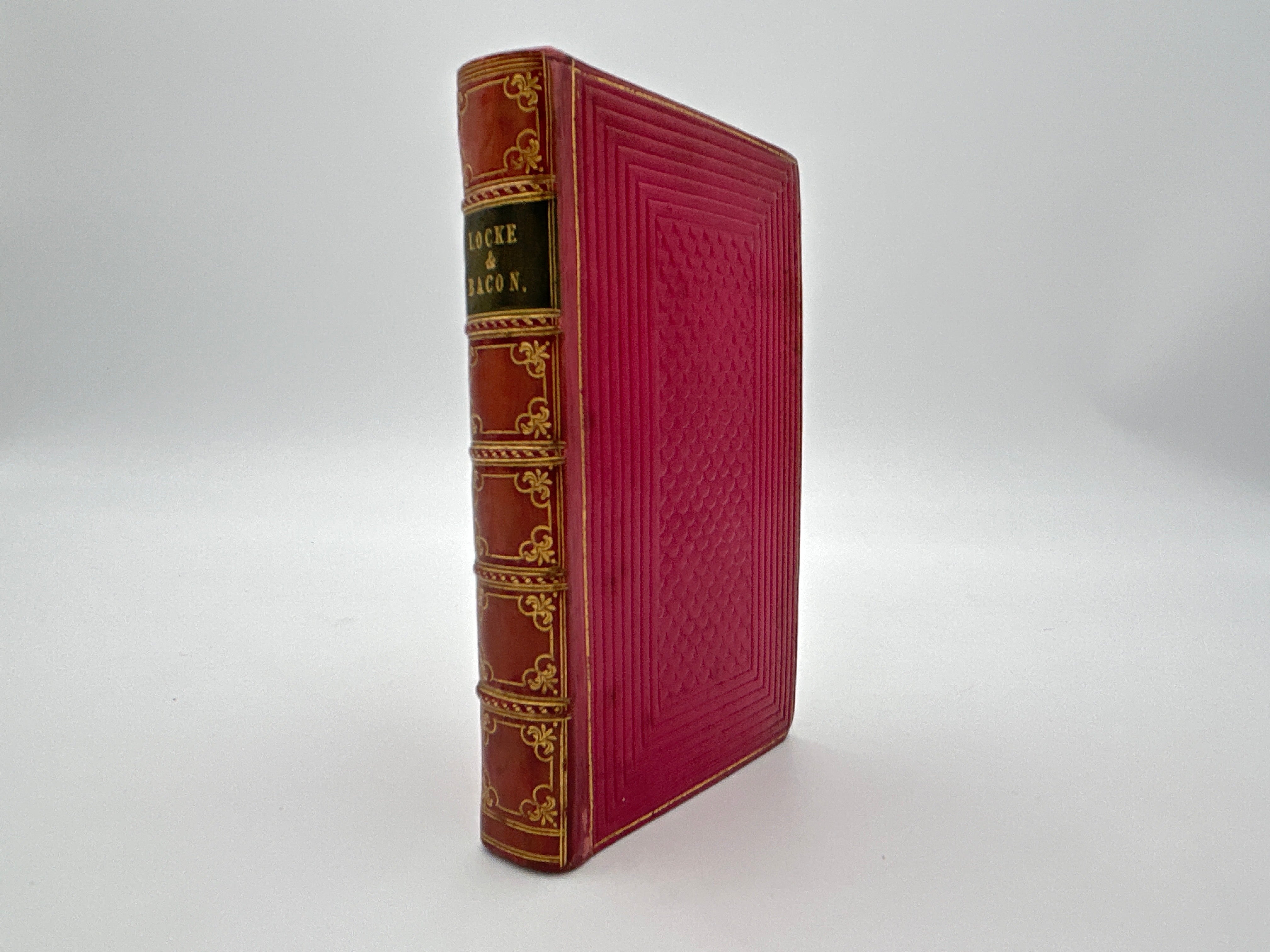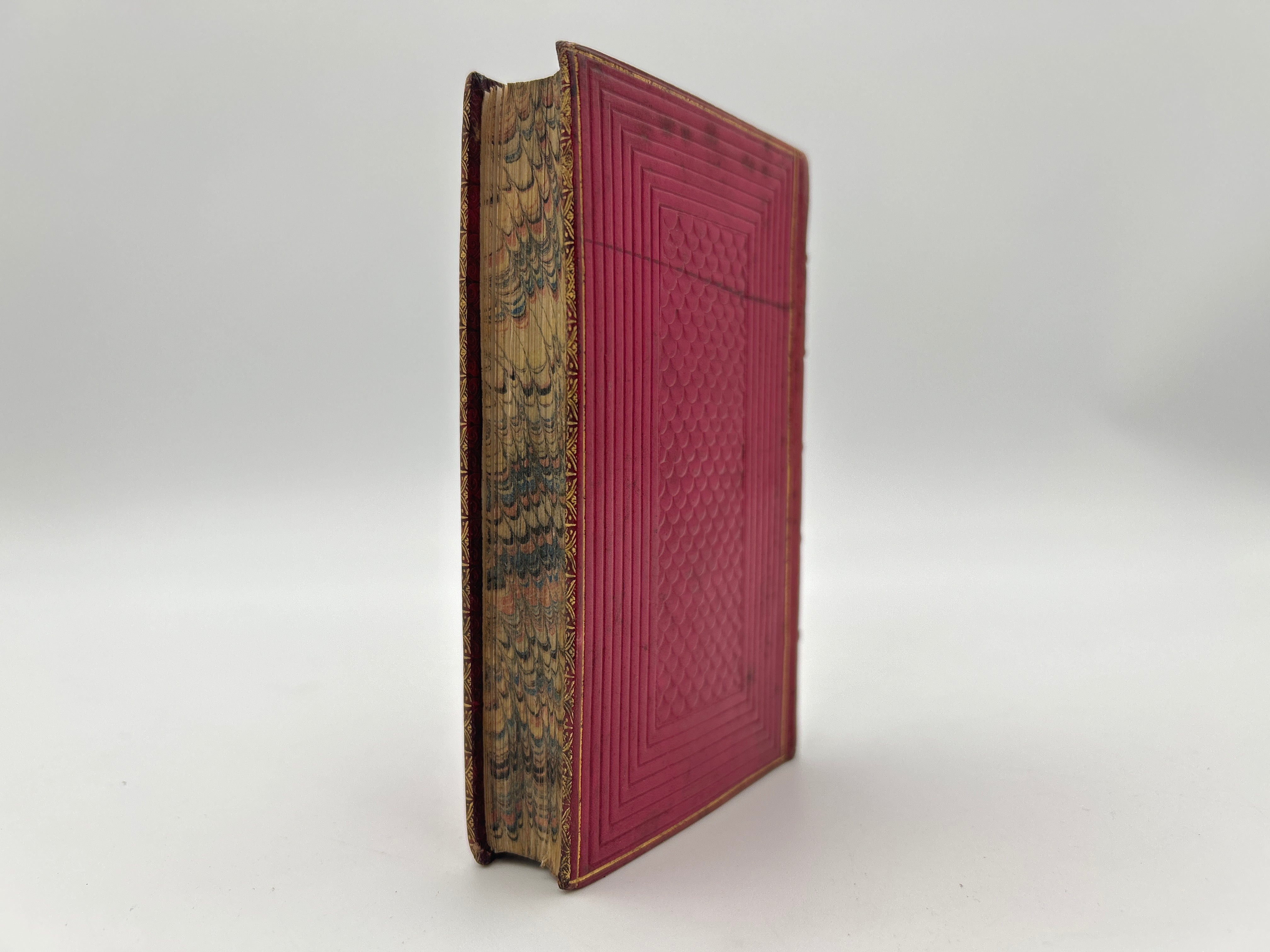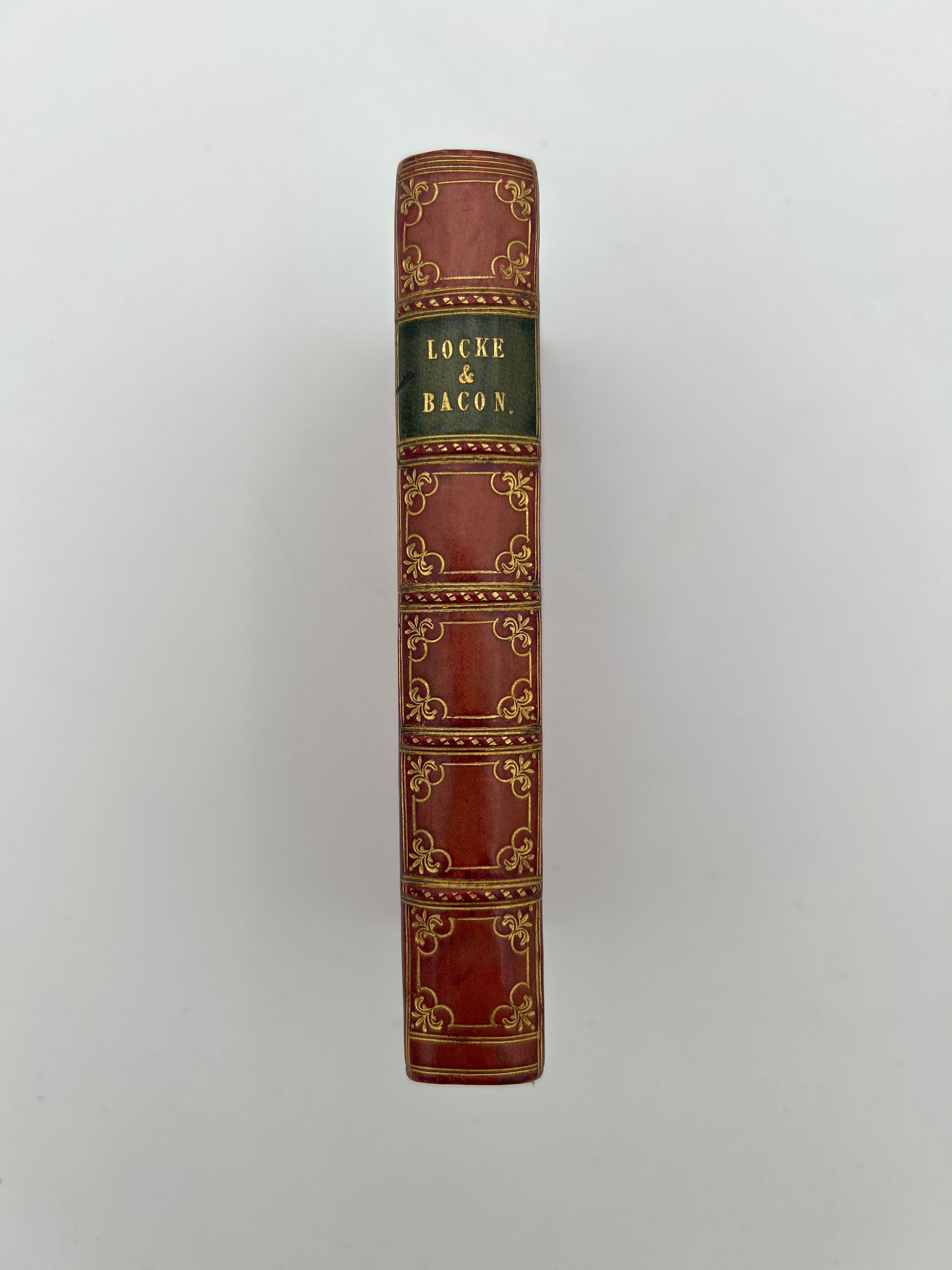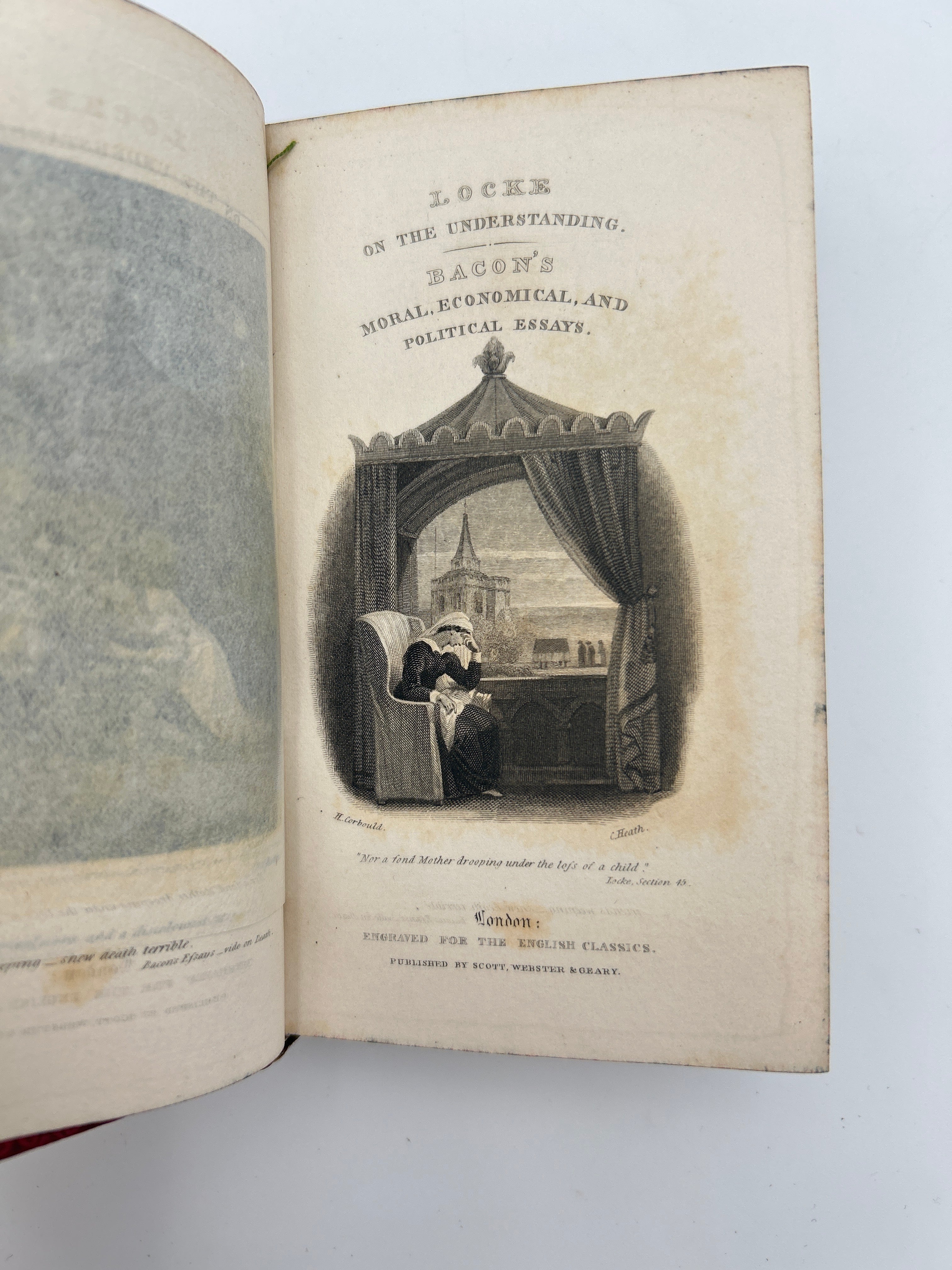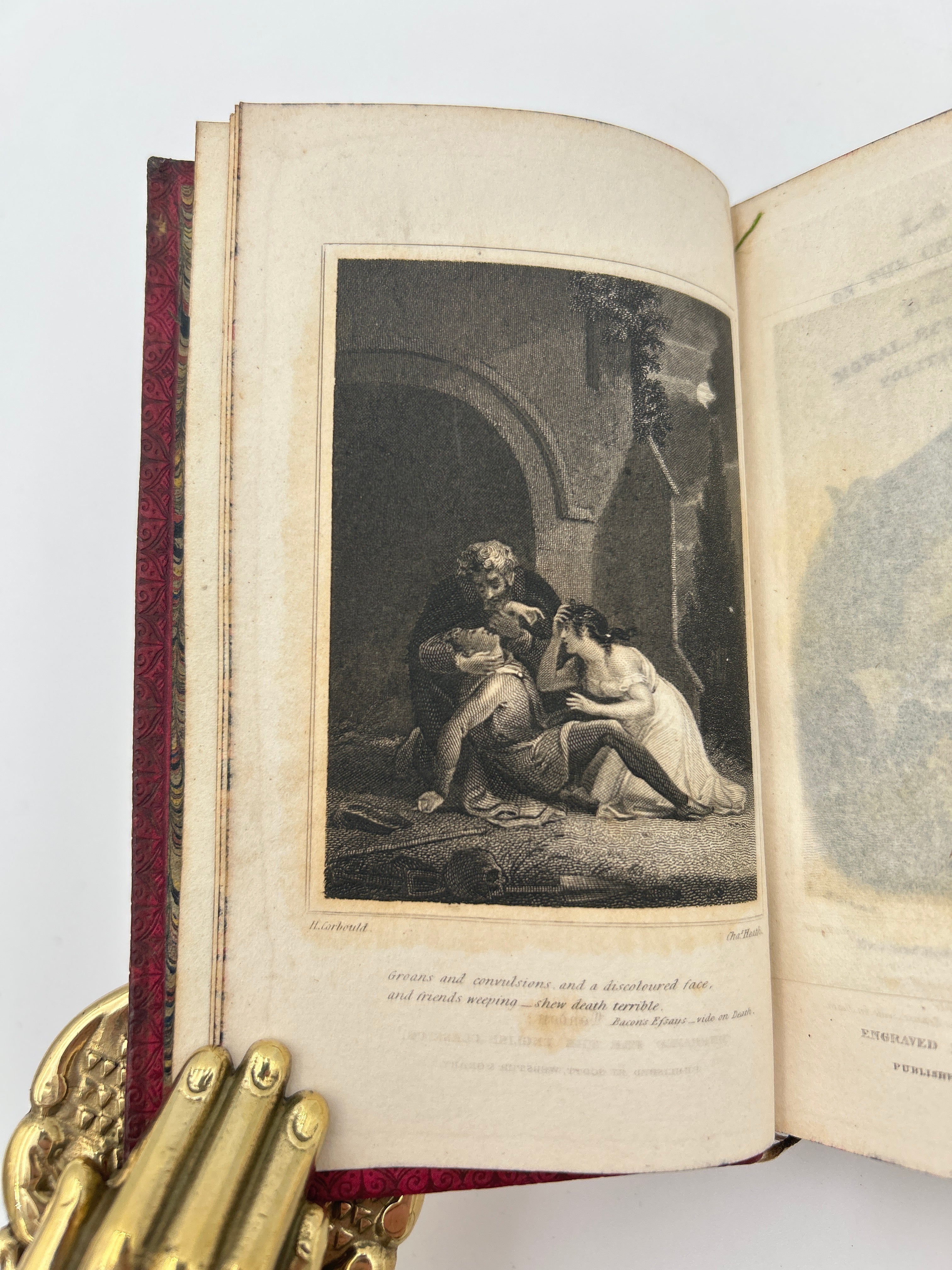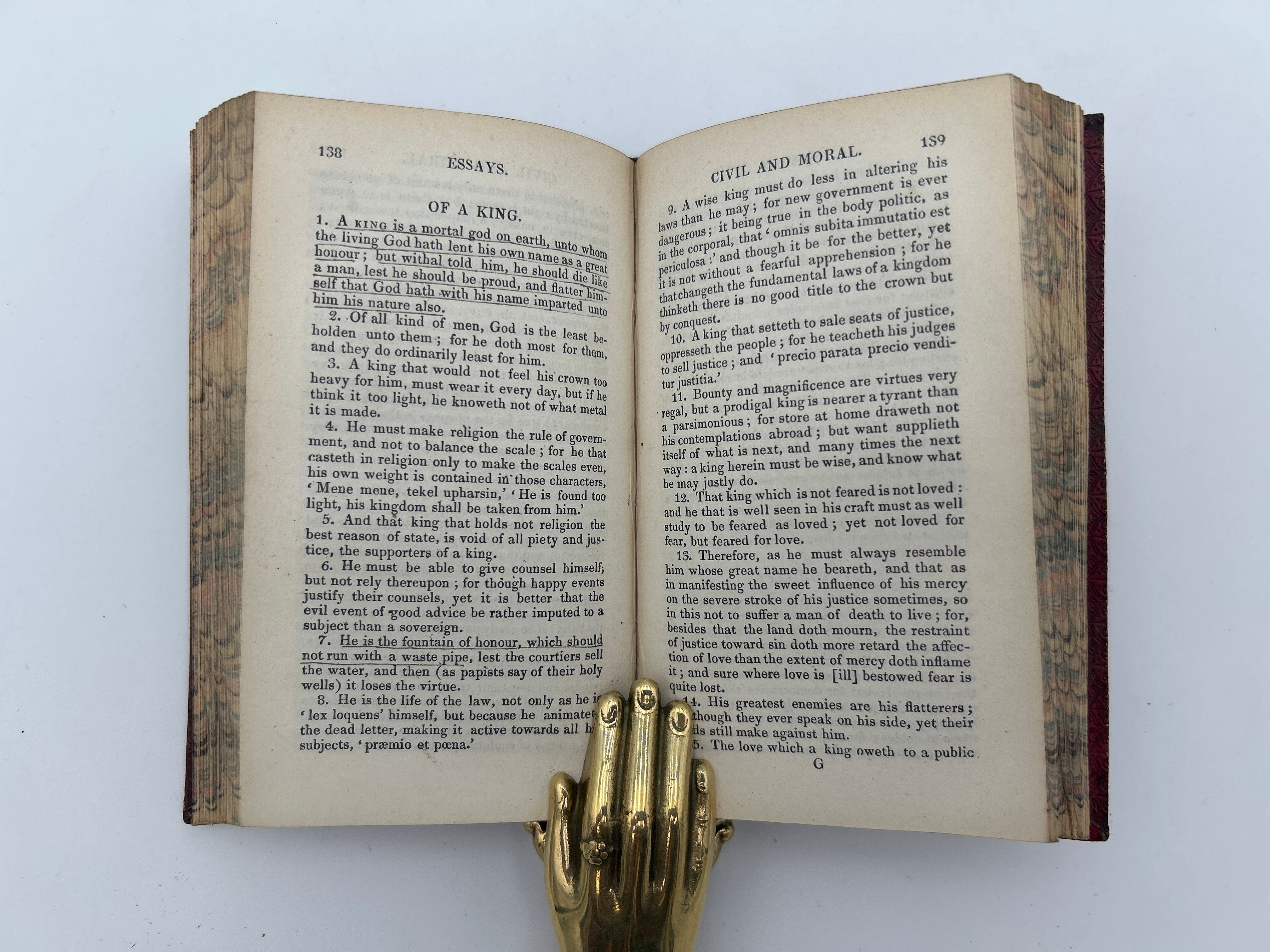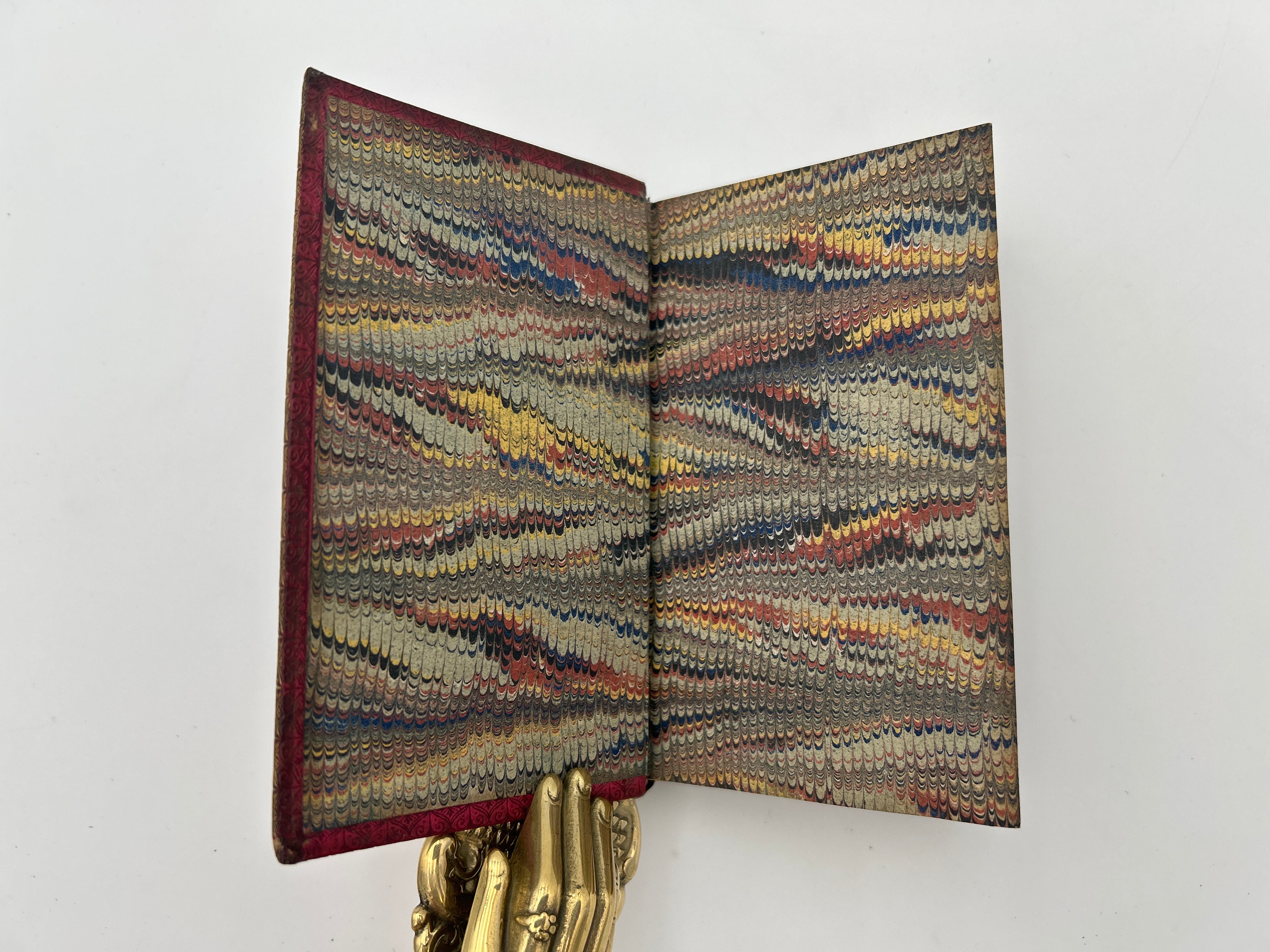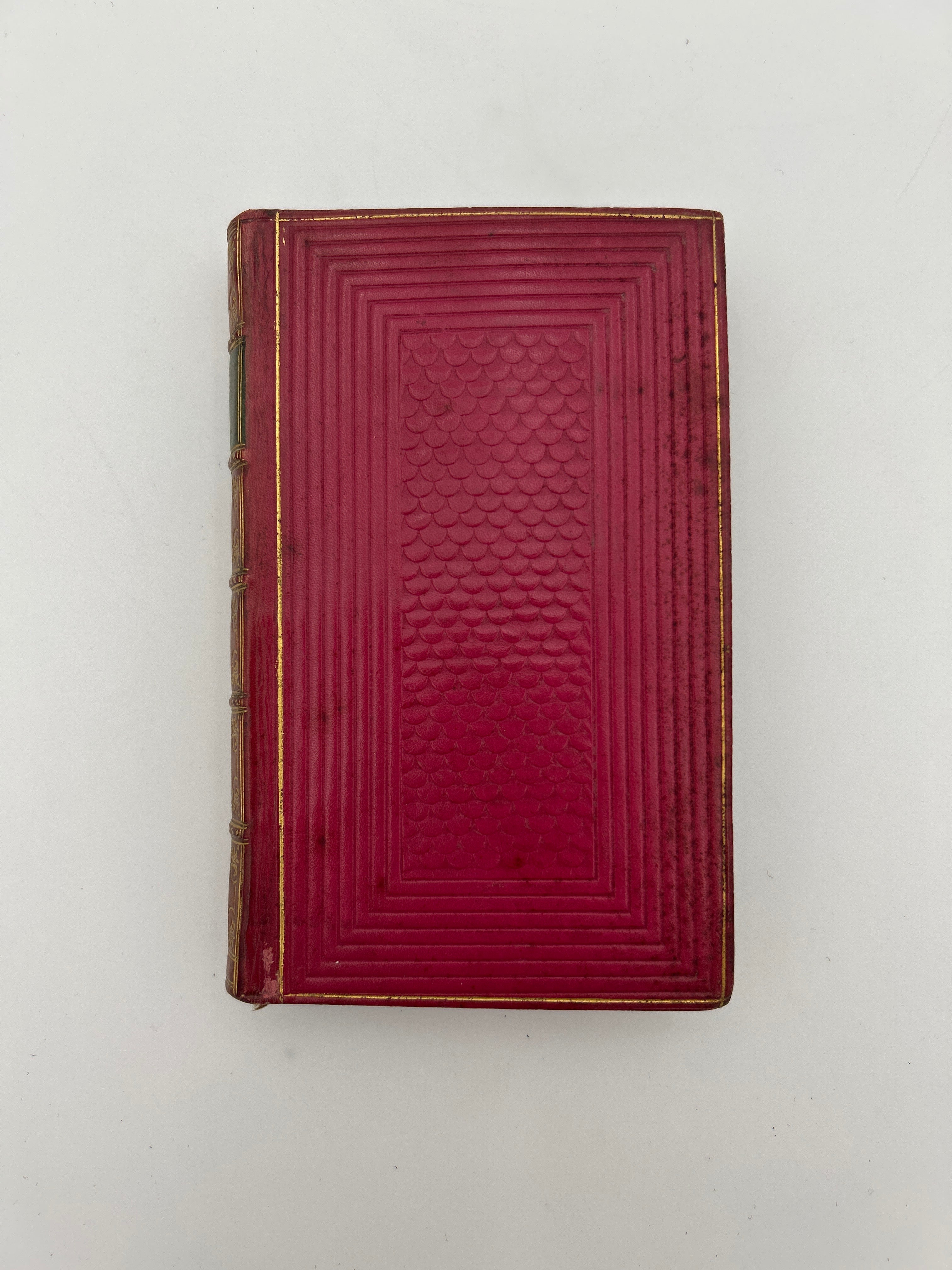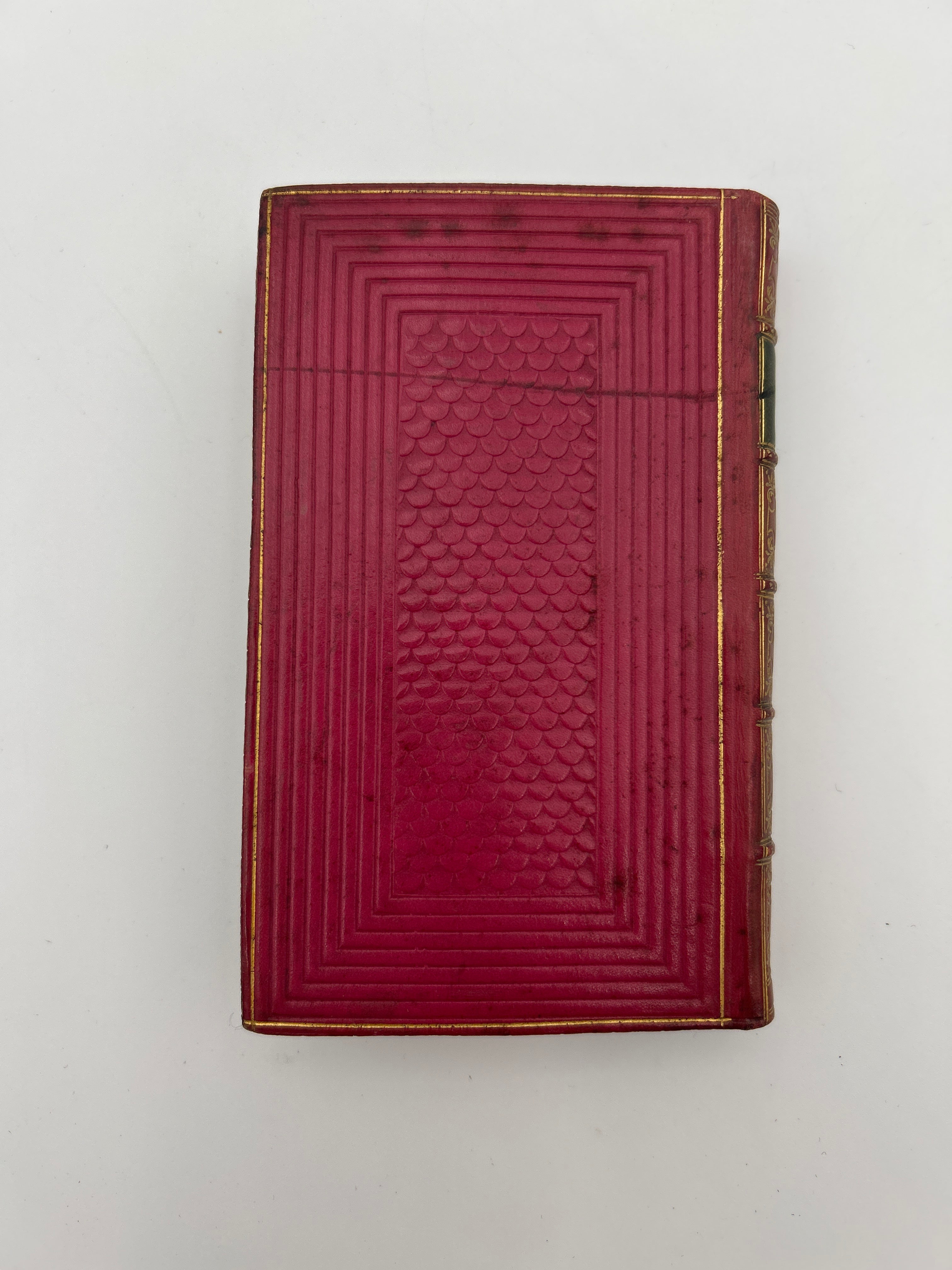The Conduct of the Understanding. (Published with) Essays, Moral, Economical, & Political
Couldn't load pickup availability
5RR John Locke and Francis Bacon, London: Scott, Webster, and Geary, 1840.
Notes
This volume brings together two foundational works in philosophy and practical thought: John Locke’s The Conduct of the Understanding and Francis Bacon’s Essays, Moral, Economical, & Political. Published together, the collection offers profound insights into human reason, morality, and governance.
John Locke – The Conduct of the Understanding
This essay, written by Locke (1632–1704), supplements his landmark work, An Essay Concerning Human Understanding. It serves as a guide to cultivating intellectual discipline and critical thinking, emphasizing the importance of avoiding biases, refining reasoning skills, and achieving clarity in understanding. The work is practical, aiming to teach readers how to think rather than what to think, aligning with Locke’s broader contributions to empiricism and Enlightenment thought.
Francis Bacon – Essays, Moral, Economical, & Political
First published in 1597, Bacon’s essays are concise and insightful reflections on human behavior, society, and governance. Bacon (1561–1626), often regarded as the father of empiricism, wrote these essays to explore universal themes such as ambition, love, truth, and power. His style is aphoristic and accessible, making his ideas about morality, statecraft, and human nature enduringly relevant.
This combined volume represents a rich intersection of ideas from two of the most influential thinkers of the early modern period. It is a valuable text for those interested in philosophy, ethics, and the development of intellectual thought during the Enlightenment.
Description
Two important titles bound in superb red full calf leather. 5 inches tall. A lovely Victorian binding with gilt raised bands and olive label with very finely gilt panels. Fading gilt embossed turn ins with marbled endpapers and edges. The boards have been stamped with ‘fish scales’ within a series of bling fillets. A very neat inscription in ink on the first blank page reading: “Mary Ann Ashley, August 1840”. Some neat ink underlining and bracketing sporadically throughout. Some discolored marking on the boards. Fine condition overall.
